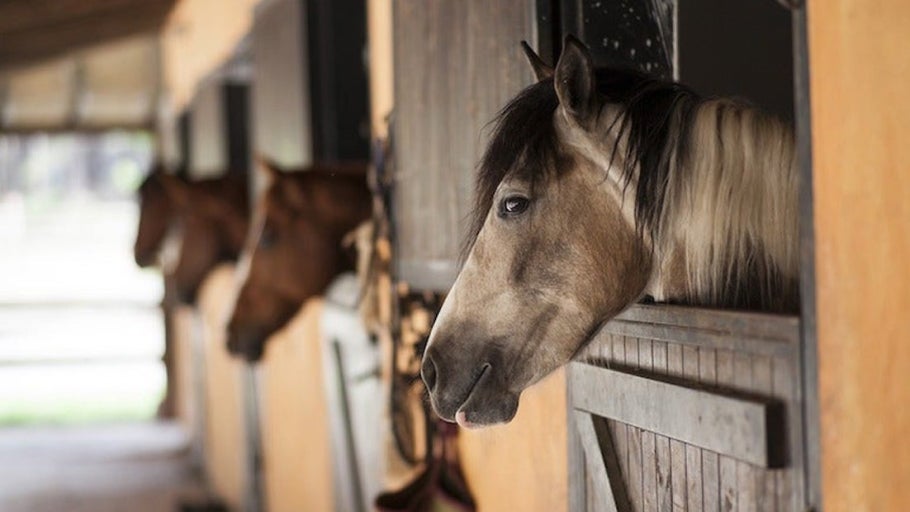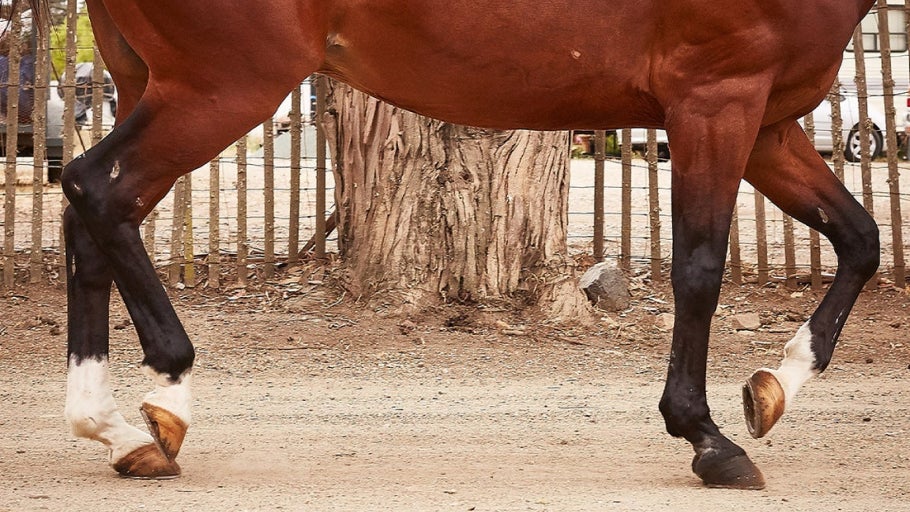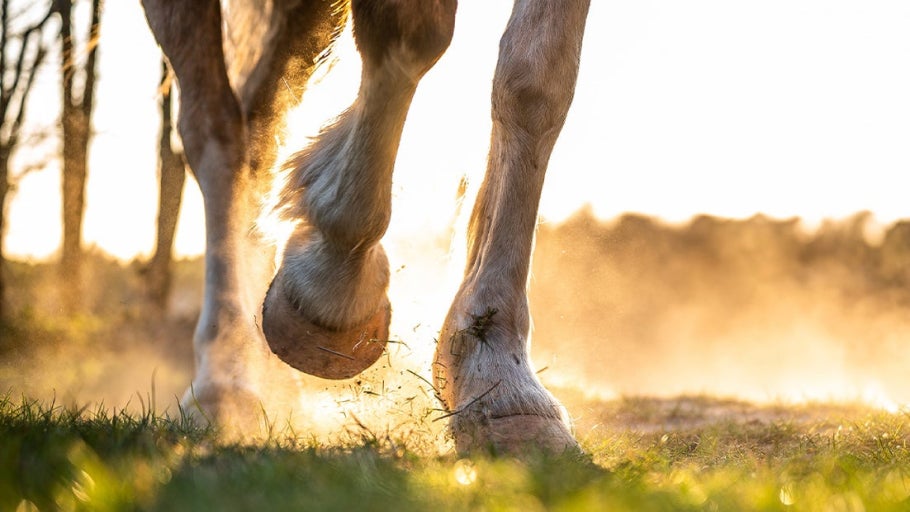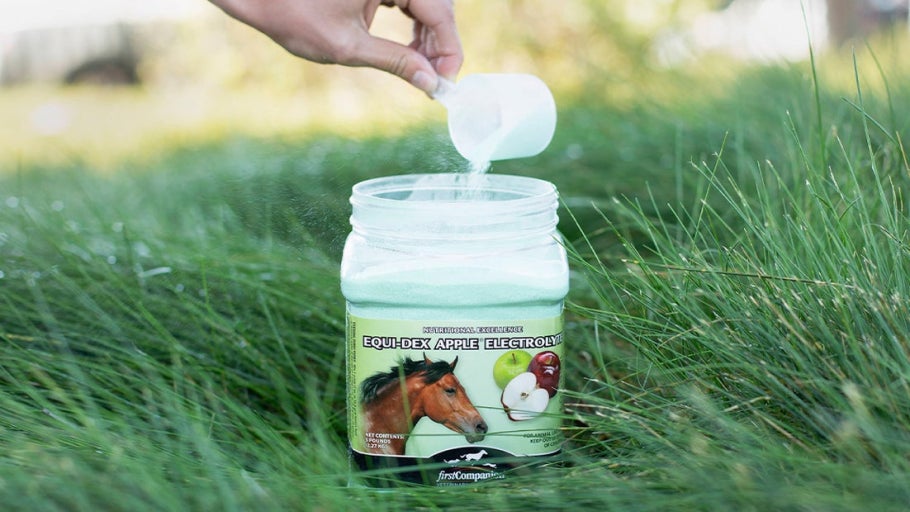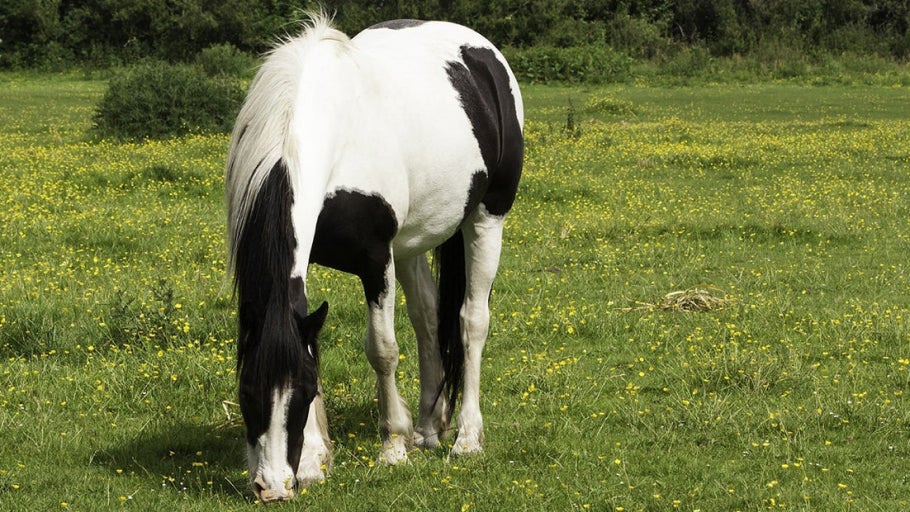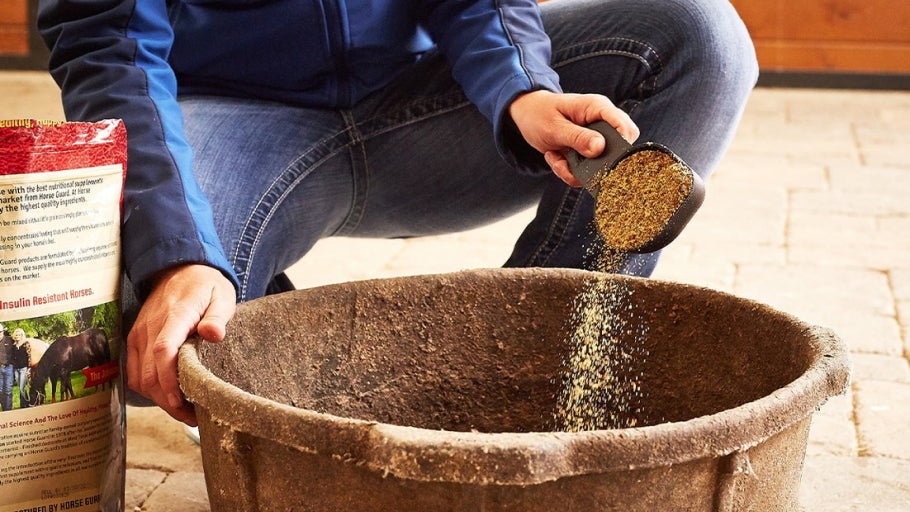
The Scoop On Equine Digestive Supplements
Horses are powerful and strong creatures, and we chose them as our battle partners for centuries for a reason. However, the gastric systems are quite delicate on our fierce equine friends. Colic is the number one killer of horses, which is a stomach ache in its simplest explanation. There are many reasons why a horse might colic, with symptoms ranging from mild to life threatening in severity. For more information on colicing, the University of Pennsylvania has a great informative study on colic and its causes.
Horses can also suffer from a variety of more mild gastric issues, which can quickly lead to significant and dangerous health problems if not addressed. From stomach ulcers to loose stools to sand colic, the stressors of modern living and training situations can cause digestive issues—even in the most well-cared for horses. Not every land area has the availability to support a horse's gastric health naturally, and this is where gastric supplements can come in to help. In this edition of "The Scoop On Supplements," we will explain how digestive supplements can support your horse's gastric health. We will also address the dangers of certain issues and answer some frequently asked questions!
Gastric Health: Preventing Stomach Ulcers
Did you know your horse's stomach is constantly secreting gastric acids? While this is beneficial for digestion when they are able to graze on grass freely, it can be an issue with modern management situations. Combining factors such as limited access to forage, feeding concentrated grains, stall confinement, use of anti-inflammatories, performance exertion, and the stress of traveling puts many horses at risk for developing stomach ulcers. In fact, ulcers affect over 60% of performance horses, and even non-performance horses are susceptible.
The good news is that supplements can help prevent stomach ulcers before they become an issue. Below are some common ingredients used in supplements.
- Omeprazole: The main ingredient in the popular ulcer treatment paste Ulcergard, omeprazole is a proton pump inhibitor that reduces the amount of acid produced in the stomach. While this can be an effective short-term solution for stomach ulcers, it is not recommended to give omeprazole on an ongoing basis since stomach acid is needed to digest food.
- Antacids: Ingredients such as calcium carbonate, magnesium hydroxide, and sodium bicarbonate can help neutralize the acid in the stomach. Antacids work quickly as a symptom treatment and have a short-acting effect.
- L-Glutamine: Glutamine is an amino acid that has been shown to be beneficial in treating stomach ulcers. It can help prevent and repair damage to tissue, and it also supports nutrient absorption in the hindgut.
- Aloe Vera: Commonly known as the cooling gel used to treat sunburns, aloe vera can also be incorporated into supplements to help soothe the stomach lining and buffer acid.
Digestive Support: Prebiotics and Probiotics
Horses are hindgut fermenters, which means that a large part of their digestion occurs through the process of fermentation by billions of bacteria in the large intestine. These beneficial bacteria are usually maintained by a high-fiber, forage-based diet, but disruptions can occur due to stress, high amounts of concentrated feeds, and the use of antibiotics. Their digestive tracts are designed for almost constant eating to prevent stomach acid from building up; keeping things moving through their digestive trait helps avoid a back up, i.e. impaction. Supplements can help replenish these beneficial bacteria to prevent and alleviate digestive disturbances by moving feed properly throughout the horse's entire digestive system. Supplements will either offer prebiotics, probiotics, or both!
- Prebiotics: Prebiotics are a source of food for beneficial gut bacteria. Feeding prebiotics alone will support already established bacteria, and feeding them together with probiotics can help support the flourishing of new bacteria.
- Probiotics: Probiotics are live bacteria and yeasts that are used to help reestablish beneficial microorganisms in the gut. There are many different bacteria strains available, such as Lactobacillus and Enterococcus.
Colic Prevention: Sand Supplements
If your horse lives in a sandy area, whether grass is readily available or not, they are at risk of collecting sand in their gut when they graze. While ingested sand can travel through the digestive system and pass naturally, it can also settle into lower areas of the intestine and build up over time. The horse's gut can collect large amounts of sand, which can lead to colic.
Psyllium supplements can help break down that sand buildup; psyllium is a soluble fiber that turns into a gel-like substance when combined with water in the gut. This gel can pick up sand as it moves through the digestive system, and psyllium helps the buildup pass more easily. Psyllium supplements are essential for coastal and desert regions where sand is especially prevalent. It is recommended to feed a psyllium supplement for seven days in a row, once per month, to prevent sand accumulation.
Frequently Asked Questions
Do horses need digestive supplements?
A lot of horse owners feed digestive supplements as needed during potentially stressful situations like feed changes, transport, competitions, and medication administering. When the gut is upset by stress or an abrupt feed change, it is important to replenish the beneficial bacteria in the tract to prevent issues like ulcers, diarrhea, colic, and more form occurring. It is helpful to introduce any feed changes gradually over the span of at least a week. Always consult the manufacturer's use instructions for recommended administration, and speak with your vet or equine nutritionist to determine what supplement and feed system would be best for your horse.
How do you improve gut health in horses?
You can naturally improve a horse's gut health by feeding quality forage high in fiber a little at a time (and more frequently) to maximize digestion. Avoid making any sudden changes to your horse's diet, and ensure you're providing quality feed and clean water. Provide your horse with plenty of exercise through regular training and turnout time, to ensure their moving around enough for optimal gut movement. Have regular dental checks to treat any teeth issues your horse may have, especially if they are older, as chewing is vital to a horse's gut health. The main acid buffer in the stomach is saliva, which is why horses benefit from continuous grazing. Also do what you can to prevent your horse from ingesting sand, such as feeding hay on a clean stall mat or off of the ground.
Closing Thoughts
Building the right gastric support regimen for your horse can feel tricky and overwhelming. No one wants to over-supplement their horse, but some supplements might be required due to our domestic settings. The goal of supplementation is to provide the horse's body with everything it needs to operate as nature designed, even when their natural environment is unable to offer complete support.
When in doubt, always consult with your vet about your horse's unique needs and the common deficiencies seen in your arena. Gastric supplements can help you avoid costly and dangerous ailments that can arise in your horse due to nutritional imbalances. Your regimen may change across the seasons as needs change with the temperatures, foliage, exercise load, etc. With the right supplements, your horse can stay feeling their best wherever you live and in whatever season!
We invite you to check out our wide selection of equine digestive supplements below. If you have any questions regarding your specific horse's diet and health, we strongly suggest that you reach out to your vet or an equine nutritionist. For questions regarding supplement products, please contact our customer service by calling 1(800)620-9145 or by emailing info@ridingwarehouse.com. Happy riding!
Further Reading
We understand that you may want to do more research on horse diet/nutrition and its related conditions. That's why we compiled some great sources below, so you can take a deeper dive!
- Ohio State University Extension on The Gastrointestinal Tract of the Horse
- PennVet University of Pennsylvania on Common Emergencies - Colic
- Mad Barn on Top 15 Equine Supplements for Digestive Health [Research Review]
- Kentucky Equine Research on Small, Frequent Meals Increase Nutrient Digestibility in Horses
Related Articles

